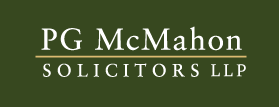 Intellectual property (IP) is an area of the law that we are all affected by, often in many small ways we might not realise. Why is Bulmers called Magners in England? Why are only older drugs available from generic manufacturers? Why are some TV shows available on Netflix in the US, but not Ireland? IP law is the common factor in the answer to all of these questions.
Intellectual property (IP) is an area of the law that we are all affected by, often in many small ways we might not realise. Why is Bulmers called Magners in England? Why are only older drugs available from generic manufacturers? Why are some TV shows available on Netflix in the US, but not Ireland? IP law is the common factor in the answer to all of these questions.
Most businesses will never have to deal with things like territorial licensing or drug patenting but any business can encounter IP issues and when they do it can lead to an expensive headache. For businesses that generate a lot of IP, it is important to know how to protect IP rights and how to enforce that protection. For many others, IP is not something that is considered until it becomes a problem. However, a little thought at the early stages can avoid problems and cost, particularly when choosing the name of a business or product. These tips give an indication of what types of IP rights exist and some of the main issues affecting small businesses.
- Know the difference. The core forms of IP are copyright, patents and trademarks. These often get mixed up, even in the media where the terms are sometimes used interchangeably, even though they are very different. In simple terms: trademarks protect names, logos or brands, patents protect inventions or products that involve an inventive step and copyright protects the written word or drawings, but also software and music. Less well known are design rights, which can protect designs, packaging or clothing for example.
- Research new ideas. If you are launching a new business, make sure your business or product name don’t conflict with an existing business. Conflicts give rise to the risk of confusion for potential customers of both businesses, and the risk of legal action from the more established business. If you are developing a website, check for similar business names that might lead to confusion or the loss of your desired web address. At a minimum, online searches should be done. Detailed search reports and advice from professionals will clarify whether or not your brand could, in fact, infringe someone else’s IP. It’s far better to resolve potential conflicts at the outset, when branding can be changed, rather than facing threatened legal action and expense when the business is up and running.
- Protect what’s yours. Copyright protection is automatic if it applies, but patents and trademarks must be registered. Protection is based on jurisdiction, so an Irish trademark is useful in Ireland only. Any business involved in cross-border sales should seek advice on protection in other markets. Make sure your trade name complies with company and registration of business names laws. If your business is up and running using a trade name which is not registered, it may still be possible to take action against someone you think has copied it. Patent registration, in particular, is a highly complex and specialised area and expert advice should always be sought as early as possible and before disclosing the invention in any way. Disclosure of an invention, through publication or sale, could bar future registration. If a decision on registration has not been made, non-disclosure agreements should be used to protect the invention.
- Don’t assume ownership. This is particularly important where you didn’t create the IP yourself, because Irish law treats employees and independent contractors differently. An contracted designer, for example, retains the copyright in something they design for you unless you agree otherwise, so don’t assume that you fully own in something you have commissioned.
- Deal with threats carefully. You might not be in a business that produces much IP, but could face IP issues nonetheless. You might be accused of using a business or product name that infringes someone else’s rights, or that your business premises does not have the correct licences to allow for the performance or playing of music or television broadcasts. If you do receive any warning or threat of legal action, or a demand for licence payments which you are not happy with, you should take legal advice before responding to the threat.
This above is a high-level overview of some IP issues but specific advice should always be taken .
PG McMahon Solicitors have broad experience in advising small and medium businesses as well as creative professionals on intellectual property, including advising on IP rights, trade mark registration, domain name disputes before the World Intellectual Property Organization, non-disclosure agreements, licensing of literary works for film adaptation and the sale of literary archives.

 069 62200
069 62200

